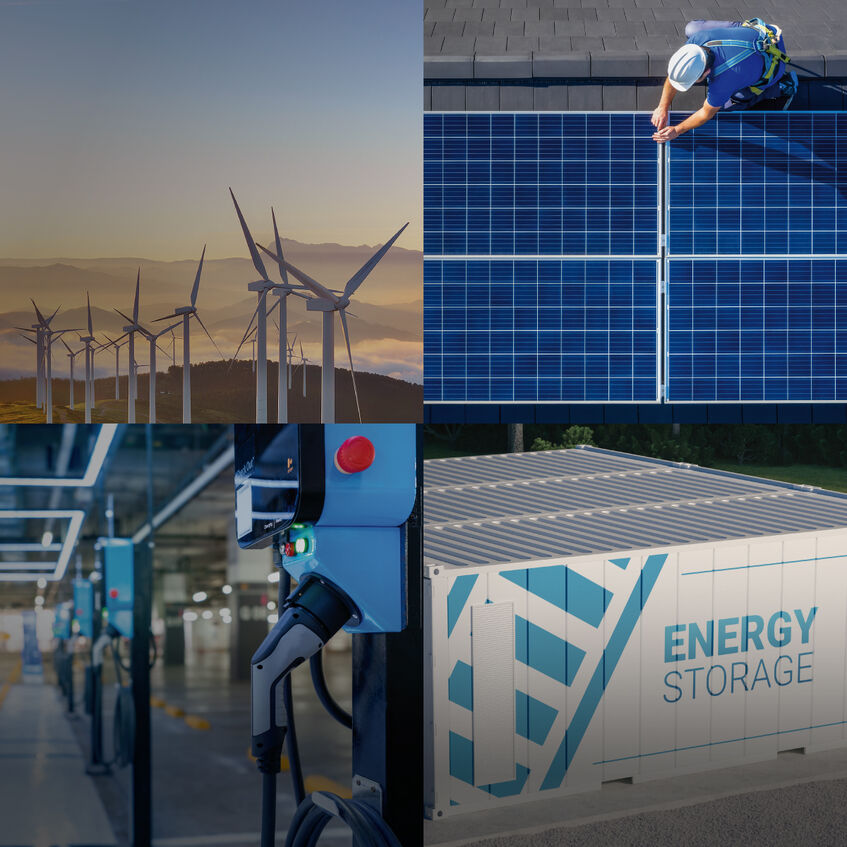Scotland Leading the Charge in Green Energy Revolution

Specialist planning solicitor Nicola Martin discusses the key areas currently dominating discussions on onshore renewables
Scotland is home to nearly half of all the UK’s onshore wind farm developments but most of these only have consent for 25 years. Our firm closely monitors the latest developments in Scotland’s renewable energy sector and are experts in end-of-life planning strategy for onshore renewable energy assets.
As the country makes progress towards its net zero emissions target, repowering has become a particular focus as growing numbers of existing renewable energy assets approach the end of their useful lives. Developers have some important considerations for such projects. Decisions are needed in time to be able to secure a consent for a repowered scheme preferably during the lifetime of the existing wind farm
Navigating the consenting regime can be complex and the necessary supporting environmental information will have to be prepared. A strategic approach is needed, drawing on a range of expertise to bring forward a consentable project which gives proper consideration to the decommissioning of the existing wind farm.
To support industry-led initiatives for sustainable decommissioning, the Scottish government has already set out its ambition to establish a Centre of Excellence for Decommissioning, and we can expect to see more initiatives like this in the coming years. The industry has long recognised the need to take responsibility for the end-of-life phase of assets, with ideas such as the re-use of blades as park benches and cycle shelters for example.
Overall, the future of renewable end-of-life planning in Scotland looks bright. While there are challenges to be addressed, the industry continues to rise to the challenge and find innovative ways to meet those challenges and contribute to the Scottish Government’s net zero targets.
The National Planning Framework 4 (2023)
The National Planning Framework 4 (NPF4) now forms part of the statutory Development Plan and has significant implications for the renewable energy industry, with increased policy support and the recognition of developments of more than 50MW as national developments.
There are also increased requirements to secure positive effects for biodiversity and to include measures as part of a proposal which will “conserve, restore and enhance biodiversity.”
While biodiversity measures have always been well received by planning authorities, Nature Scot and the Scottish Environmental Protection Agency, it has not always been a top priority for developers.
But the mitigation onlyapproach is no longer enough. NPF4 forces a rethink, requiring proposals not only to mitigate the effects of the development but to go further and include additional benefit which will enhance biodiversity.
The implications of this for the new sites and repowered sites will require to be considered on an individual basis as each site is unique and brings its own challenges.
Overall, NPF4 provides strong policy support for the renewables industry and WJM’s renewables team is actively helping a number of clients to navigate the planning policy framework as they seek consent for projects that will ultimately contribute to Scotland’s net zero targets.
Renewable Energy Technologies
Scotland is a proud leader in renewable energy, with an abundance of natural resources such as wind and tidal energy, and a commitment to reducing carbon emissions.
In the coming years, there are a number of exciting projects and initiatives that will further strengthen Scotland's position led by continued development and implementation of new technologies.
Energy technology is evolving and developing rapidly and one of the most notable developments is the growth of green hydrogen in Scotland. Hydrogen is a versatile fuel that can be used in a variety of applications, from transport to heating. It is expected that it will provide alternatives for heating homes and fuel in our cars on a national scale.
The country has significant potential for green hydrogen production, thanks to its abundant wind and tidal resources. We can expect to see new hydrogen projects in the coming years, including the Aberdeen Hydrogen Hub as one example, which aims to develop a green hydrogen production and distribution network in the granite city.
We are also increasingly having conversations with clients at the preliminary stages of their proposals for combined technology sites, including recent discussions around the potential for including hydrogen manufacturing close to the source of the renewable electricity, within an onshore wind farm site.
Battery storage is often included as part of a proposed onshore wind farm development, and it currently is included as part of the generating capacity of that wind farm. The infrastructure for a battery storage unit is now required to be described as part of the application.
This is a topic to watch as the technology improves and numbers increase. There is discussion of particular interest to the developer and the Scottish Government around the status of battery storage as a generator.
Solar farms, either as stand-alone developments or in combination with wind and battery storage, are another technology which is emerging in Scotland.
We are currently advising clients on projects to deliver this renewable technology. Green hydrogen, solar and battery storage present exciting and compelling elements of a range of technologies available for deployment.
With continued investment in diverse types of technology, we can expect to see a more reliable and sustainable renewable energy supply, which will benefit everyone.
This article first appeared in The Herald
The information contained in this newsletter is for general guidance only and represents our understanding of relevant law and practice as at May 2023. Wright, Johnston & Mackenzie LLP cannot be held responsible for any action taken or not taken in reliance upon the contents. Specific advice should be taken on any individual matter. Transmissions to or from our email system and calls to or from our offices may be monitored and/or recorded for regulatory purposes. Authorised and regulated by the Financial Conduct Authority. Registered office: 319 St Vincent Street, Glasgow, G2 5RZ. A limited liability partnership registered in Scotland, number SO 300336.



